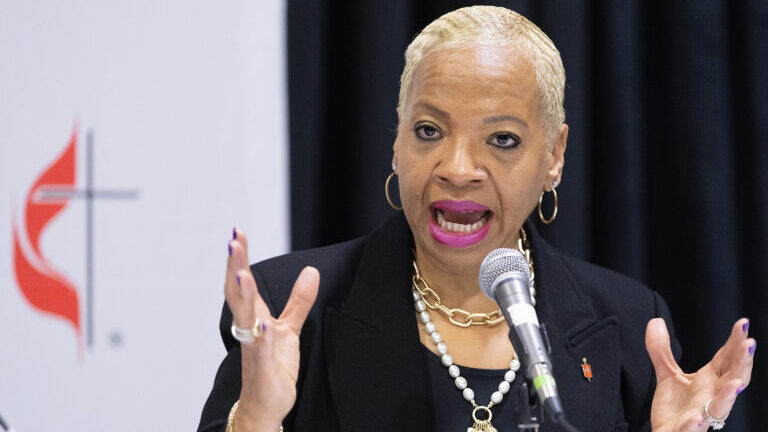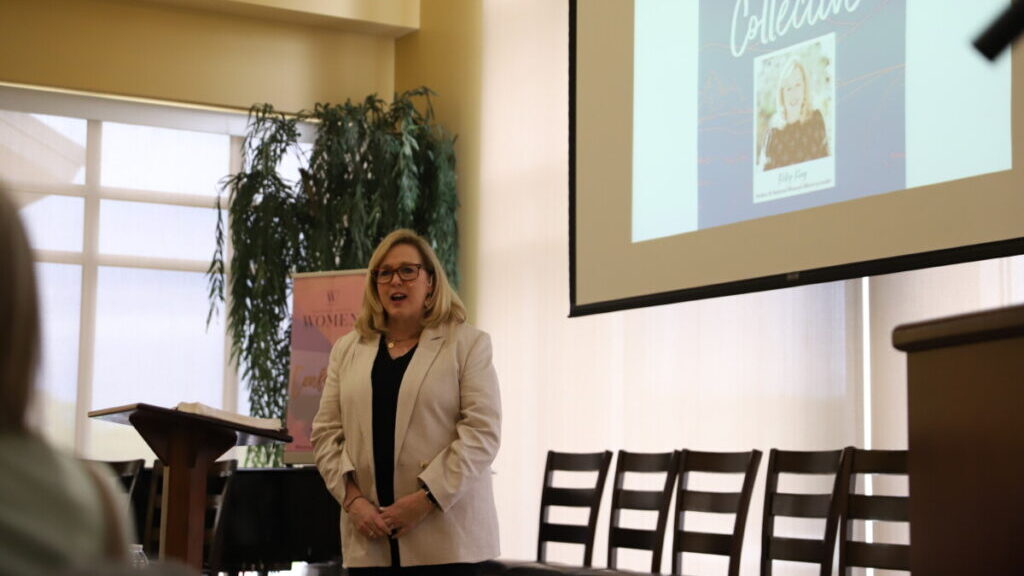Week in and week out, the same group of unconverted people come to our worship services — and we practically ignore them. We’d never treat first-time visitors like this, and if we ever heard they felt ignored, we’d certainly go out of our way to make them feel at home.
But this group? We basically ignore them. If you haven’t realized already, I’m talking about the children in our gatherings.
Don’t assume children can’t or won’t listen. Many things will escape them, but they understand more than we give them credit for.

Surely, anyone who has raised children has learned this. But for some reason, in church, we’re training them to think they don’t need to listen — that what the adults are doing is simply not for them. I know we don’t mean to do this, but when week after week we never directly speak to them, I can’t say I blame them.
Endearing task
Speak to the children in your sermons. It’s a fun and endearing task. I’m not always successful, but I try in every sermon to make a specific application to children. This helps them to perk up and listen. It helps them to know their pastor cares. Most importantly, it communicates the preached Word is for them too.
Here are seven reasons for my commitment to this practice:
- Scripture speaks to children. Paul’s letters spoke directly to children, which means God in His Word speaks directly to children. As Paul addresses Christian households in Ephesus and Colossae, he tells children what obedience to God looks like. Were these children already converted? We’re not told, but they are given specific, pointed instruction. We should do no less.
- Children need instruction. Children need instruction just like everyone else. We don’t believe they’re born in a state of innocence, so they need instruction in the commands of God. It’s easy for church people to complain about “children today.” Don’t be among those who merely complain. Be one who instructs.
- Children need evangelizing. Once you begin to instruct anyone in the commands of God, you also owe them instruction about their inability to obey God. In many of our churches, children are probably the largest group of lost people who regularly attend. Yes, we expect parents to be evangelizing, and we seek to help equip parents to do so. But one way we help parents is by modeling evangelism for them.
The world is eager to allure children. Let their pastors be at the forefront of calling them to faith in the God who created them, loves them and is able to redeem them.
- Direct speech builds trust. Being a pastor is about caring for souls. Speaking to children builds a bond. I love to hear children telling their parents they know they’ll be addressed. One dad told me his teenage daughter said, “Uh, oh. Pastor Ray is preaching, so I know I better listen because he will talk to us.” That’s right!
- All ears perk up. When you speak to the children, I’ve noticed that every ear seems to perk up. It’s especially fun to watch the parents. They want their kids to pay attention, so they nudge them. Of course, this usually means the parents are locked in too.
- It will help you with other applications. Speaking to children will sharpen and strengthen your application work overall. It will prevent you from being generic. It’s all too easy for preachers to talk about lofty principles without pushing down to engage the heart.
- All eyes begin to notice children more. Churches tend to prioritize what their pastors prioritize. So I’ve noticed that my applications to children have pushed the church as a whole to build intergenerational relationships. Various cultural forces push us to isolate into narrow affinity groups, rather than embracing the fullness of the body of Christ. This is one reason why my application grid includes children and the elderly — and for ways to connect the two.
Speaking to children in our sermons is not a novel idea. Jonathan Edwards preached entire sermons specifically for children.
Profitable effort
Charles J. Brown, a leading 19th century Scottish pastor, exhorted fellow pastors, “As regards the pulpit … surely, were we but more deeply concerned about the matter, our ordinary preaching might be somewhat more of a character which the children could profit by.
“Independently of occasional sermons addressed to them, might we not, by a little careful forethought, find some word in almost every discourse more expressly for the children?”
It takes work, but speaking to the children has become one of my highest pastoral joys.
Ray Van Nest
Dean and professor of biblical studies at Union University
Krispy Kreme tips for churches
Marketing is simpler than you think.
Whether doughnuts are healthy or not is another subject, but I don’t think I’ve ever met anyone who doesn’t like Krispy Kreme.
Churches buy them by the truckload for events of all kinds, but those same churches may be missing the most important lesson from the company:
No major advertising
Sure they spend a tiny fraction of their budget on promotions, in-store signs, digital and social media, and similar marketing ideas, but even as a nationwide retailer, when it comes to serious traditional advertising, they don’t do it.
Why?
They rely on one of the most effective advertising tools in history: Word of mouth.
Sharing with friends
I’m all for advertising, but the best advertising campaigns happen when the product, service, or experience is so amazing, people want to talk about it. They want to share it with friends.
And what better experience to share with your friends than church?
But then again, I have to admit, most church services don’t help me engage with God on a deeper level, teach the Bible as the amazing book that it is, or regularly transform lives.
But if it did, I’m pretty sure those transformed people would be talking about it.
Phil Cooke
philcooke.com
As I look back on my life, I see a God who continually provided for me, continually protected me, continually guided me, continually loved me, continually forgave my sin and continually had an incredible amount of patience with me. I see a God who comforted me when those close to me passed away. I see a God who gave me hope in my darkest days. I see a God who blessed me in ways I surely did not deserve. As I look forward, I have complete confidence (faith) that He will continue to do the same.
Bill Brewster, author
“Revival: It’s Time to Live Again”
“If someone told me 15 years ago that I would be a preacher, I would have laughed. God is unbelievable, the way He plans it all together.” Tim Clark, who was born with no legs and only his left arm and is a member of the Fellowship of Missouri Baptist Evangelists.
“One of the temptations when faced with complex or challenging ethical questions with technology is to rush to a position of full adoption or rejection of these tools,” said Jason Thacker of the Ethics & Religious Liberty Commission. “Wisdom, which is at the core of the Christian moral tradition, calls us to slow down and to think deeply about the nature of these tools … .”
“A pastor needs to wrestle with the Word of God and not just put words into a program and let it spit out something. There’s something intuitively wrong about that,” said Jeffrey Riley, New Orleans Baptist Theological Seminary professor of ethics, on AI writing software.
In 1780, a layman by the name of Robert Raiks was disturbed about the need for children to be brought together … to be taught God’s Word, ethics and Christian principles. Such concern came to America in 1825 at Broadway Baptist Church in Baltimore, Maryland, and started on Sundays. It was not part of the church until the (1880s) in the forms of Sunday Schools and other organizations. Everything we have has emerged from the needs of churches.
Morris Murray Jr.
Jasper, Ala.
Your church should have a controlled takeaway message you want to be known for. That thread needs to authentically weave itself through your website, services, ministries and your welcome time.
Mark MacDonald
BeKnownforSomething.com.
Find someone: a trustworthy friend, a Bible study leader, a sibling, and ask if they’d be willing for you to come alongside each other to grow a healthy habit in your spiritual journey.
Hannah Muñoz
the-scroll.com
From the Twitterverse
@philipnation
As quickly as we surrender are troubles before the Lord, we should also surrender our strengths. Neither are even a speck of dust in His presence and both are overwhelmed by His grace.
@DustinBenge
Jesus’ birth is meaningless without His sinless life. His sinless life is meaningless without His cross.
His cross is meaningless without His resurrection. With Jesus, it’s all or nothing.
@shane_pruitt78
What to do when your kids aren’t walking with Jesus:
Pray without ceasing; remember that God loves them even more than you do; don’t compromise your faith, but also don’t argue about it; don’t burn a bridge, so they have a path back; point to Jesus when possible.
@MrT
Heavenly Father, I praise and thank You for all the small things that make each day so delightful! Help me to never again take daily blessings for granted. Amen.
@gregstier
If the gospel you preach doesn’t sound too good to be true, it’s not good and it’s not true.
“However, to the one who does not work but trusts God who justifies the ungodly, their faith is credited as righteousness.” —Romans 4:5
@ErikReed
Two small things I love hearing on Sundays at church:
- The people saying “Thanks be to God” after we read the sermon text and I say “This is the Word of the Lord.”
- The sound of Bible pages rustling as we turn to look at Scriptures.
We must cultivate a love for Scripture.
@keabone
Respectful dialogue is always a catalyst for change.
Disrespectful dialogue is almost always ignored and becomes noise that is easily ignored. Choose wisely. The world needs more change not more noise.








